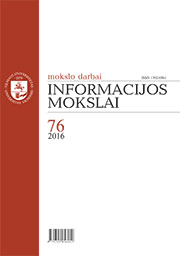Knowledge management practices in Lithuanian business organisations: a case study
Knowledge management practices in Lithuanian business organisations: a case study
Author(s): Zenona Ona AtkočiūnienėSubject(s): Education, Business Economy / Management, Methodology and research technology, Economic development
Published by: Vilniaus Universiteto Leidykla
Keywords: knowledge management; knowledge processes; strategy; innovations; learning;
Summary/Abstract: The constant competition in the contemporary hyperdynamic market is one of the main conditions that forces organisations to search for optimal ways to increase their operational efficiency. The main goal of knowledge management in business organisations is to transform knowledge into capital, thus maximising organisational efficiency. Continuous knowledge creation and its use undoubtedly increase an organisation’s value in the market. An organisational structure must strive to be flexible and able to change in response to the external and internal environments. Consistent strategic management, adaptive to the changes in the environment, organisational learning and other factors should ensure the competitive advantage of the organisational structure. Only the structures that systematically create and diffuse, update and apply knowledge to the development of new technologies and products/services, i.e., those that are engaged in continuous innovation, can be successful. Theoretical insights and empirical studies show that the application of knowledge is possible only when it is purposefully managed.
Journal: Informacijos mokslai
- Issue Year: 2016
- Issue No: 76
- Page Range: 111-122
- Page Count: 12
- Language: English

